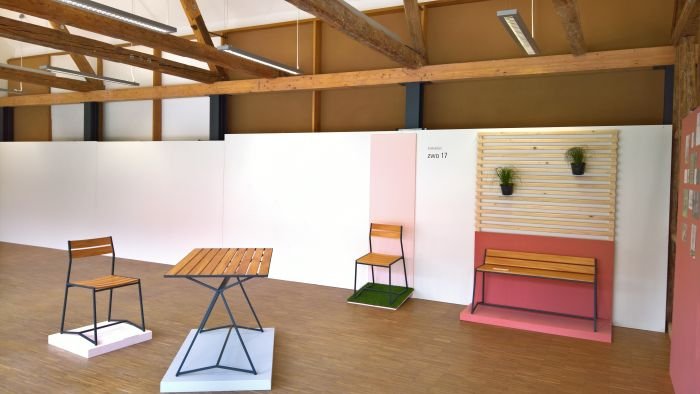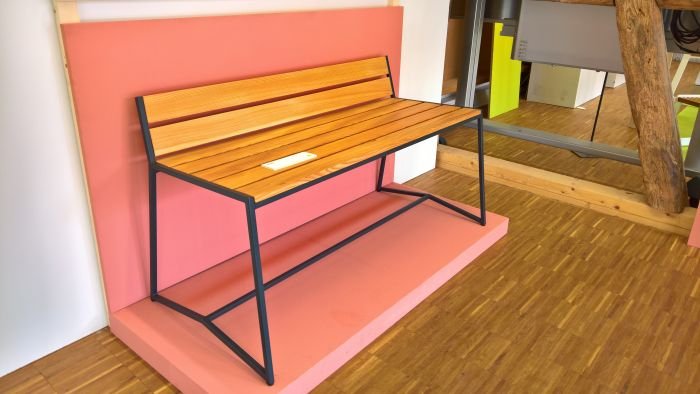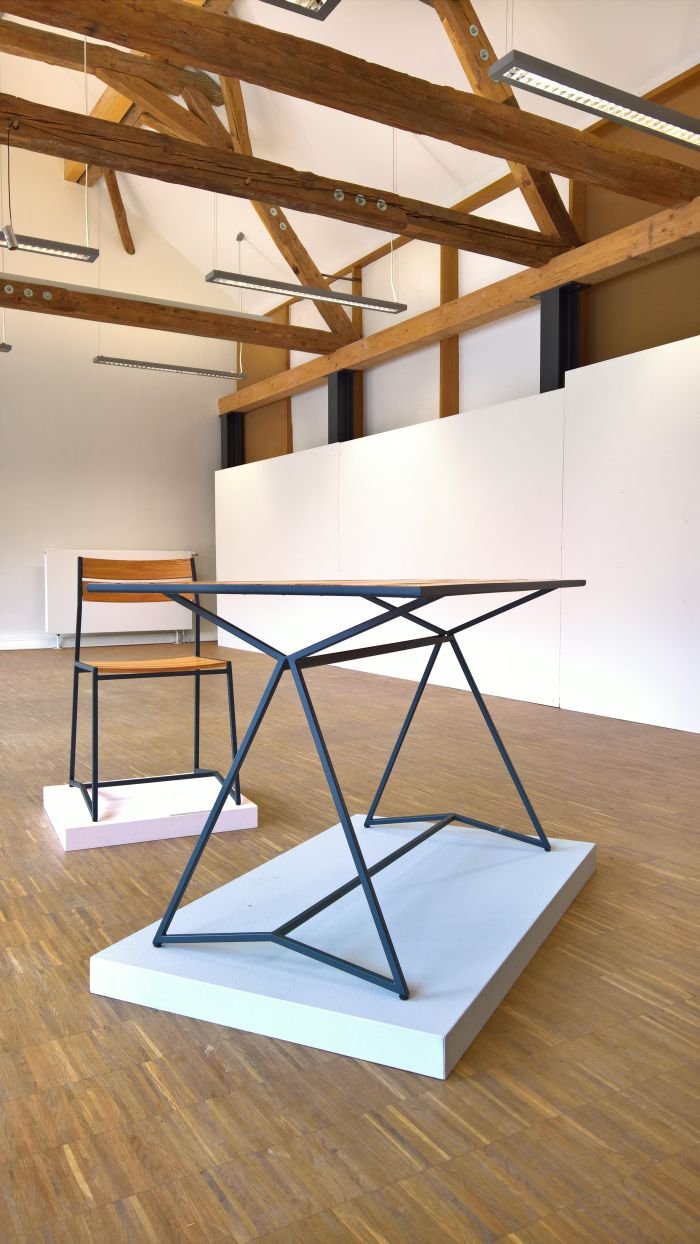While it's certainly true that without having been introduced to the work of Akademie für Gestaltung der Handwerkskammer Münster alumni Florian Kallus and Sebastian Schneider a.k.a design studio kaschkasch, we probably wouldn't pay that much attention to the Akademie, that introduction was pre-kaschkasch: a project from Florian at DMY Berlin 2010 and one from Sebastian at IMM Cologne 2011. And yes we are blowing ever so gently on our own trumpet. If at the same time terrifying ourselves by the thought of just how long we've locked in this death spiral.
But being aware of the Akademie für Gestaltung der Handwerkskammer Münster, our 2017 #campustour couldn't not visit their Finale graduation exhibition....
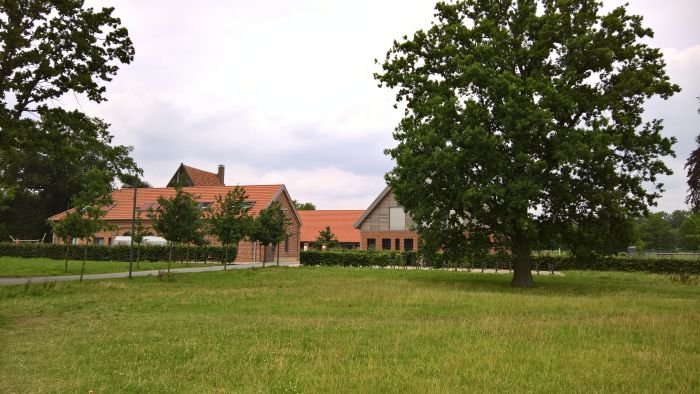
Established in 1991 by the local Handwerkskammer - Chamber of Trades - the Akademie für Gestaltung der Handwerkskammer Münster has the self-proclaimed aim of advancing the design competence of crafts and tradesfolk; of imbuing those with a degree of craft competence with the basics of design thinking with the intention that they combine the two in an exponential fashion.
Open to qualified tradesolk of all persuasions an interesting feature of the programme at the Akademie für Gestaltung is that amongst the accepted graduation project typologies is the development, or indeed establishing, of a company/brand, something perhaps best exemplified by the aforementioned kaschkasch which began life as Florian and Sebastian's graduation project.
And naturally a state of affairs which means in terms of teaching the business aspects of being a self-employed designer, the education in Münster goes far, far beyond almost all other design schools.
Brands and companies were very present at Finale 2017 as were interior design concepts for various settings and furniture and lighting of numerous genres.....
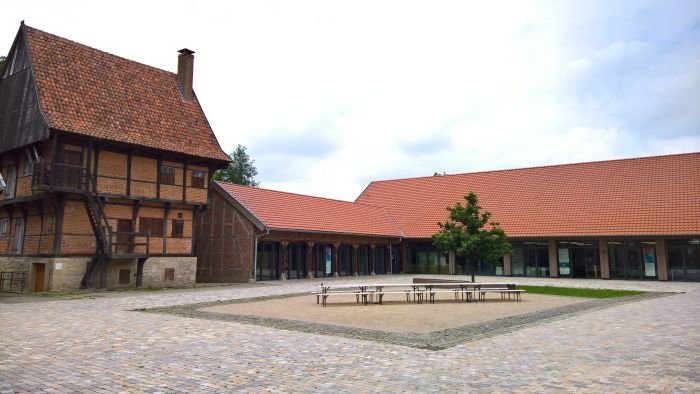
By the time we visited the Finale exhibition two of the projects and been taken down and taken away. To be fair the exhibition had been on show for neigh on two weeks by the time we made it to Münster, and so it can't be considered one of the standard hazards of visiting student semester exhibitions. Despite that the absence of one of the projects was slightly galling. We're not saying it was the sole reason we made the trip to Münster, but when we were researching and planning the trip it did stand out. Normally we wouldn't even mention a project we hadn't seen, but in this case our not seeing it neatly highlights why viewing design projects is important.
Realised by Philipp Hastenpflug the project Justo promised a modular sofa landscape concept, and it was exactly this modularity which attracted our attention; however, as with all modular systems there are a couple of factors which can be only be properly assessed in situ. On the one hand how are the separate pieces connected? Is that logical, durable, self-explanatory, practical etc, etc, etc. Then there is the combination options, do they work, do they create sensible, aesthetic set-ups, not least because with Justo there are a couple of post-modern curves in the mix. All that can only be assessed through viewing. Not from photos, you've got to get in there and kick it. Sadly we couldn't. Justo was however, apparently, developed in collaboration with the German manufacturer COR, and so if they liked it and decide to produce it, we guess well be seeing it, and kicking it, at IMM Cologne before too long.
Amongst those projects that were on show........
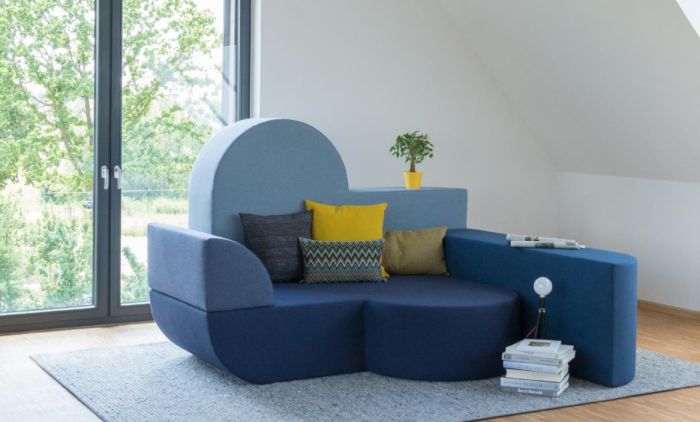
Conceived as a system for allowing the construction of rooms-within-rooms, Unpublic Spaces by Ulrike Becker is, in essence, a plastic connector for joining plywood boards. As regular readers will be aware we are very much the opinion that the future will, must, involve a greater utilisation of 3D printed connectors which serve as the basis of construction systems, be that for furniture, or as here, architectural elements. Although for the Finale presentation Ulrike had built a chair, thus neatly underscoring the universality of the concept.
If a concept with which we have a couple of issues, predominately the fact that the connectors are set in milled slots. While we appreciate this allows for a much smoother, more elegant, finish and a little more security, it does however detract from the flexibility and adaptability of the system. Every reconfiguration requiring as it does fresh milling, and the old groves are still visible. And so for us a "plug and play" system where the boards slot into the connectors is in many respects more satisfying. But as ever, what do we know, and as concept we certainly see it as being worthy of further development.
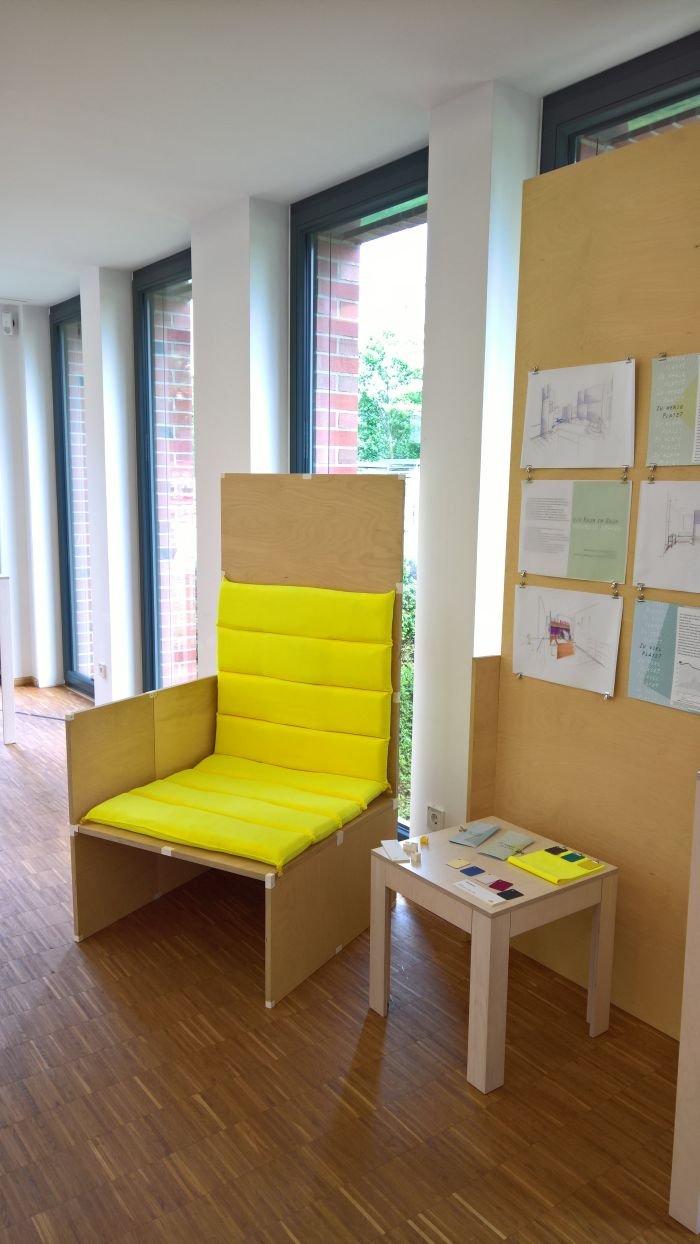
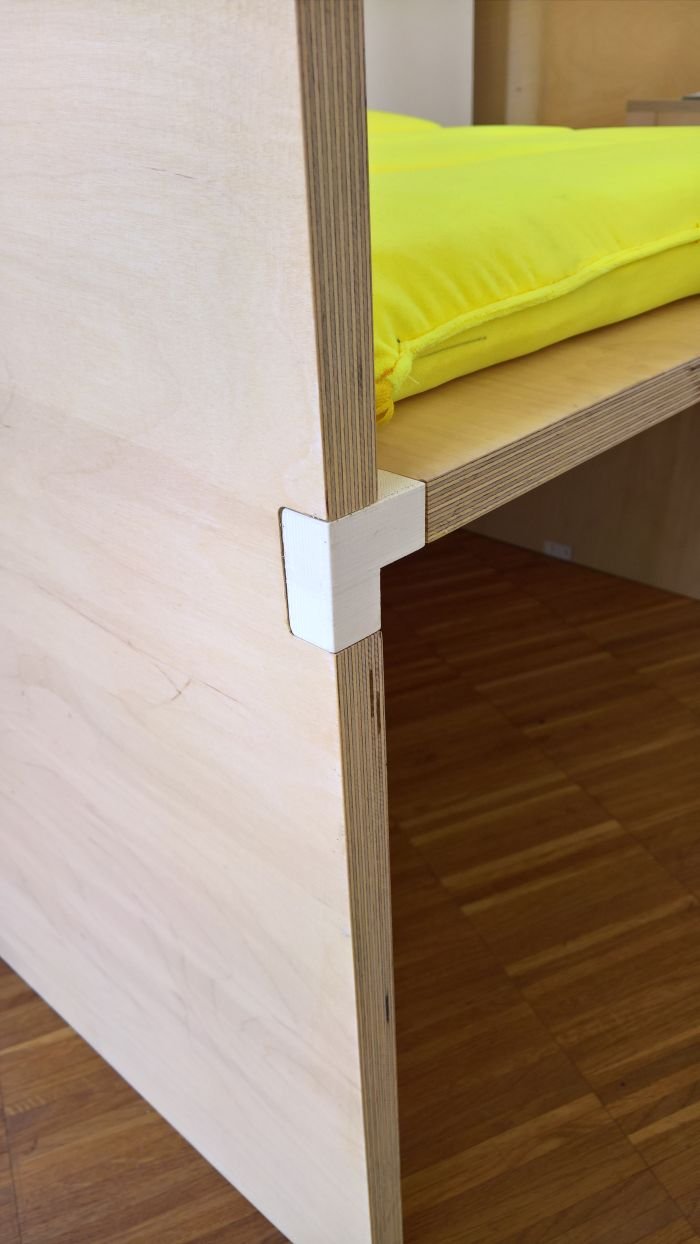
For their graduation project Till Strohmeier & Theresa von Bodelschwingh formed the furniture brand studio-t, and while proposing a not uninteresting portfolio the absolute stand out project is the table lamp Orbit.
But why the cable?
Lose it.
And quickly before anyone notices it was there.....
As a rechargeable, portable lamp that users can carry from room to room to garden to shed and back again, Orbit is for us an absolute delight, and that despite the fact that a lightbulb in the middle of a wooden circle should make no sense, should be open to public ridicule. But is a genuine joy and just the most logical and alluring of lamps. Indeed after seeing it we couldn't stop singing Wee Willie Winkie, so familiar and comfortable is the concept...... It's now been a few days since we saw Orbit, and we still can't really explain why it works, and in a way we hope we never can. Rather just savour its mystery and wonder.
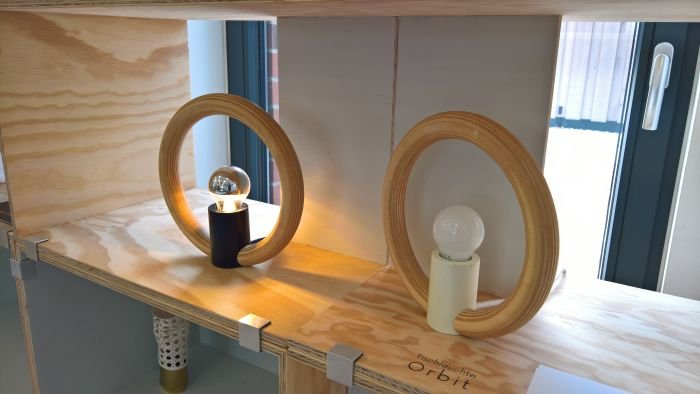
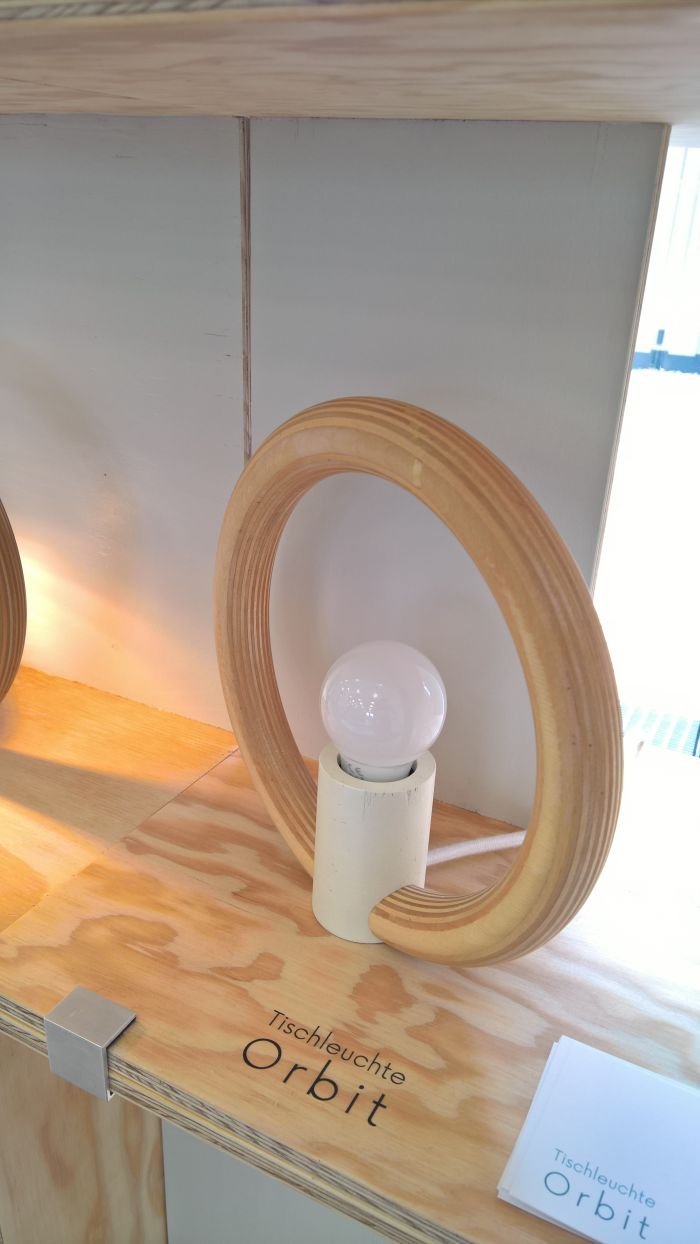
Ever since IMM Cologne 2017 when Thonet released the S 1094 by Randolf Schott we've developed a bit of a thing for benches with very short, more implied than present, backrests. It's not a big genre, and thus gets us all the more excited.
Consequently there was a certain inevitability that Anne Biastoch & Niklaas Hübner's Kollektion zwo 17 bench would set our pulses racing. And it did. And not just on account of the backrest, but also on account of its charmingly open construction principle, agreeable proportions and visual lightness. As an object it barely exists. And that in a very self-confident manner.
And a form language that is eloquently transferred to the equally pleasing table with its intelligently and aesthetically formed base. There is in particular something about the little upward knick in the stretchers that brings a degree of playfulness, almost insubordination, into the otherwise rigid form.
Sadly we couldn't try out either the bench or the accompanying chairs, however our gut feeling says one shouldn't expect any unpleasant surprises.
Full details on the Akademie für Gestaltung der Handwerkskammer Münster can be found at www.akademie-gestaltung.de and all 2017 graduation projects at Finale 2017 Project (BIG .pdf)
